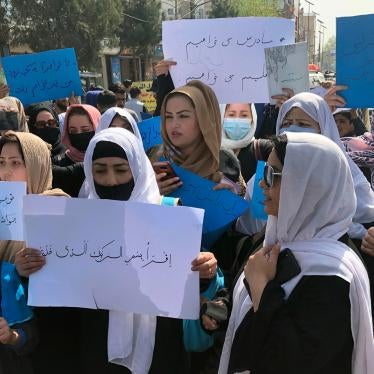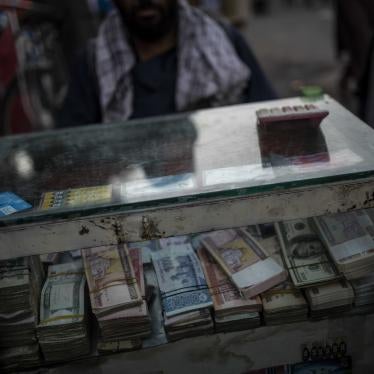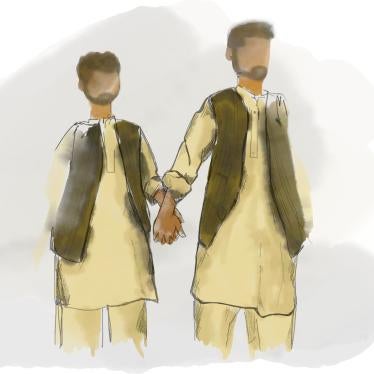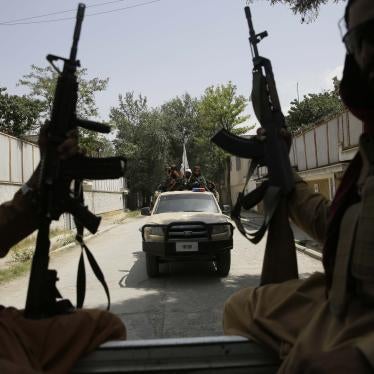My name is Fereshta Abbasi and I am speaking on behalf of Human Rights Watch.
Afghanistan has spiralled into a humanitarian and human rights catastrophe following the Taliban’s takeover last year. Millions of Afghans are facing acute food insecurity—the result of an economic meltdown set off by widespread lost income, cash shortages, and rising food costs. Children are starving.
At the same time, the Taliban is making it harder for the international community to help. Authorities have harassed and detained human rights defenders, women’s rights activists, and journalists, summarily executed or forcibly disappeared more than a hundred people associated with the former government, and increasingly censored or imposed severe restrictions on media. And last week, they extended their earlier ban on girls’ secondary education, striking a devastating blow to millions of girls and their families. This is the latest in a string of decisions the Taliban have made violating virtually every aspect of the rights of women and girls—a decision that highlights their cruelty and disregard for basic rights.
In the face of these crises, greater effort is needed. There are several immediate steps donors and governments should take to defend and promote Afghans’ human rights, including the rights of girls and women. Here are a few:
Stop engaging with the Taliban in ways that generate prestige. Bad acts should result in consequences. If you meet officials in Kabul or Doha, do so quietly, without photo ops. Make sure women are well represented in delegations. Include Afghan women where possible.
Speak out for those defending human rights, especially the rights of women and girls. Although the Taliban have brutally retaliated against women’s rights protesters in the past, protests erupted following last week’s extension of the secondary school ban. Speak out loudly—and speak out together—to support protesters and other rights defenders.
Fund education and other services, but without funding discrimination. Make sure that funding isn’t used to support programs that exclude girls, for example, secondary schools in provinces where girls are barred. Fund groups working to defend the rights of women and girls in Afghanistan, including alternative education options for girls shut out of schools.
Crucially, in reaching decisions on assistance to Afghanistan, we urge you to avoid punishing the people of Afghanistan for the Taliban’s human rights abuses.
Afghanistan’s humanitarian crisis is at root an economic crisis—and it is especially affecting women and girls, who face greater obstacles to getting food and basic resources.
Financial pledges are critical, but as you recognize, this crisis cannot be remedied by donations alone. Governments—and in particular, the US government—need to urgently address Afghanistan's banking and liquidity crisis. The economy is cut off from the world. Vital poverty reduction projects are on hold. Payments of vital assistance and salaries have stopped to millions of teachers, health workers, and other essential workers.
None of this can be effectively fixed until Afghanistan’s banking sector is normalized. We urge governments to move quickly so that happens.
Finally, we ask that you remember the plight of the millions of Afghans who have fled or who remain in Afghanistan at risk of persecution. Donor governments need to live up to their responsibilities and commitments to assist displaced Afghans and increase sanctuary for those at risk, including resettlement and relocation where possible.
Thank you.








